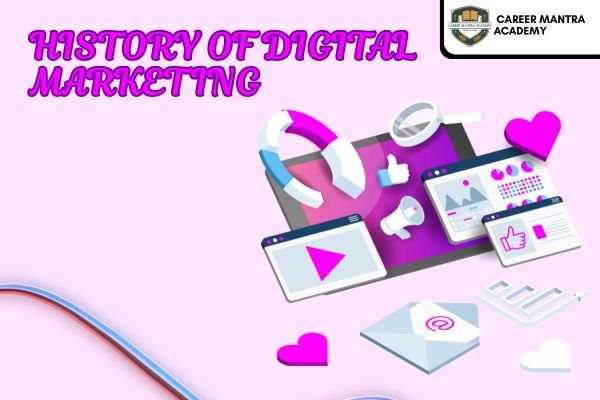Accounting Courses in India: Best Complete Guide, Career Opportunities & Salary Prospects in 2026
For Applying Accountancy Course Click Here… What Are Accounting Courses in India? In India, accounting courses are academic and professional programs that instruct students in the recording, analysis, interpretation, and management of financial data. Key topics, including bookkeeping, taxes, auditing, financial reporting, payroll, and business law,s are covered in these courses. There are several levels of accounting courses available, including undergraduate, graduate, professional, certificate, and diploma programs. They are appropriate for graduates, post-10th or post-12th grade students, and working professionals who wish to establish a secure career in accounting and finance. Accounting courses are essential in preparing competent professionals who can manage financial responsibilities accurately and ethically across industries, given the expansion of businesses, startups, and corporate sectors in India. Why Are Accounting Courses Popular in India? Accounting courses are popular in India because they offer strong career stability, wide job opportunities, and long-term growth. Every business, from small firms to large corporations, needs skilled accounting professionals to manage finances, taxation, and compliance. These courses provide practical skills that are always in demand across industries such as banking, manufacturing, IT, and commerce. Accounting courses also offer multiple learning options, including short-term courses and professional qualifications, making them accessible to students at different education levels. Additionally, accounting careers are respected in India and offer competitive salaries with opportunities for advancement and self-employment. What Is Accounting and Why Is It Important for Businesses? Accounting is the systematic process of recording, classifying, summarizing, and analyzing financial transactions of a business. It helps organizations understand their financial position and make informed decisions. Accounting is important for businesses because it ensures financial accuracy, transparency, and legal compliance. Importance of accounting for businesses: What Skills Are Required to Learn Accounting? Learning accounting requires a combination of technical knowledge and personal skills. These skills help students understand financial data, follow rules, and perform accounting tasks accurately. Developing the right skills makes accounting easier and improves career success. Important skills required to learn accounting: Types of Accounting Courses in India: Indian accounting programs are made to accommodate students with a variety of educational backgrounds and professional aspirations. India offers a variety of accounting courses, regardless of the student’s goal—a high-level professional qualification or rapid job-oriented skills. These courses can be broadly categorized into professional accounting courses, degree programs, certificate programs, and diploma programs. Each type has a unique career scope, duration, and eligibility. 1. Certificate Accounting Courses Certificate accounting courses are short-term programs focused on practical accounting skills. These courses are ideal for beginners, students after 10th or 12th, and working professionals who want to gain basic accounting knowledge quickly. Key features: Topics usually covered: Certificate courses are suitable for entry-level jobs such as accounts assistant, billing executive, or junior accountant. 2. Diploma Accounting Courses Diploma accounting courses provide deeper knowledge compared to certificate programs. They are popular among students who want strong practical skills without committing to a long-term degree course. Key features: Common diploma courses include: These courses often include hands-on training in accounting software, taxation, and compliance, making students job-ready for small and medium-sized organizations. 3. Undergraduate Accounting Courses Undergraduate accounting courses are academic degree programs offered by universities and colleges. These courses build a strong foundation in accounting, finance, economics, and business management. Popular undergraduate accounting courses: Key features: These courses open career paths in accounting firms, banks, corporate offices, and also act as a base for higher studies and professional courses. 4. Postgraduate Accounting Courses Postgraduate courses are meant for graduates who want advanced knowledge and better career opportunities. These courses focus on strategic finance, advanced accounting concepts, and management skills. Common postgraduate accounting courses: Key features: Postgraduate accounting courses are suitable for managerial roles, financial analyst positions, and teaching careers. 5. Professional Accounting Courses Professional accounting courses are highly respected in India and offer excellent career growth, salary potential, and professional recognition. These courses are regulated by professional bodies and require rigorous training and examinations. A. Chartered Accountant (CA) The CA course is one of the most prestigious accounting qualifications in India, conducted by the Institute of Chartered Accountants of India. Focus areas: Career roles: Auditor, tax consultant, financial advisor, CFO B. Cost and Management Accountant (CMA) The CMA course is offered by the Institute of Cost Accountants of India and focuses on cost control and strategic management. Focus areas: Career roles: Cost accountant, management accountant, financial controller C. Company Secretary (CS) The CS course is conducted by the Institute of Company Secretaries of India and specializes in corporate law and compliance. Focus areas: Career roles: Company secretary, compliance officer, legal advisor D. International Accounting Courses India also offers internationally recognized accounting qualifications. Popular options include: These courses are suitable for students seeking international careers or those interested in working with multinational companies. 6. Online and Computerized Accounting Courses With digital transformation, online accounting courses have become highly popular. These courses focus on practical tools and software used in the industry. Common tools taught: Online courses are flexible, affordable, and ideal for working professionals. 7. Accounting Courses After 10th and 12th Students can start accounting courses early in their careers. Early exposure to accounting helps build a strong career foundation. 8. Accounting Courses for Working Professionals Many institutes offer part-time, weekend, and online accounting courses designed for working professionals. These programs help upgrade skills, improve salary prospects, and support career transitions. What Is a CA (Chartered Accountant) Course in India? In India, the Chartered Accountant (CA) program is a professional accounting credential that emphasizes business laws, taxation, auditing, and finance. One of the most prestigious career options in the accounting industry, it is administered by the Institute of Chartered Accountants of India. In addition to required practical training, the CA course is broken down into three levels: Foundation, Intermediate, and Final. Students who complete this course will be prepared to manage corporate finance, tax planning, audits, and financial reporting. A CA may hold senior finance positions in businesses or work as an auditor, tax consultant, or financial advisor. What Is a










